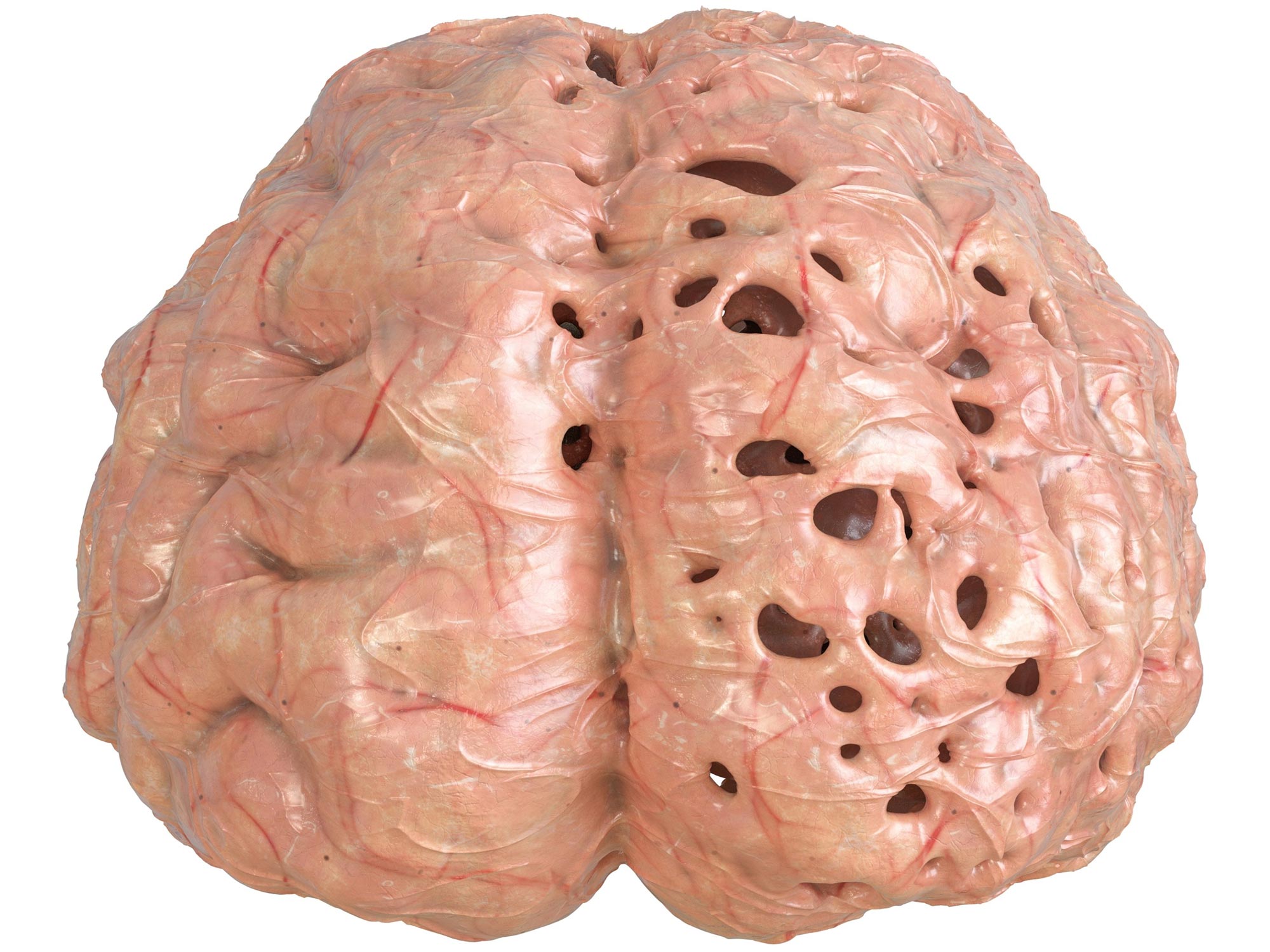Shocking Study Finds Decreased Proteins – Not Amyloid Plaques – Cause

The prevailing theory is that Alzheimer’s disease is caused by the buildup of amyloid plaques in the brain. However, new research finds that it is actually caused by a decline in levels of a specific protein.
New research on patients with mutations published in the Journal of recently called into question, new research from the University of Cincinnati (UC) bolsters a hypothesis that Alzheimer’s disease is caused by a decline in levels of a specific protein.
UC researchers led by Alberto Espay, MD, and Andrea Sturchio, MD, in collaboration with the Karolinska Institute in Sweden, published the research on October 4, 2022, in the Journal of Alzheimer’s Disease.
Questioning the dominant hypothesis
This research study was focused on a protein called amyloid-beta. The protein normally carries out its functions in the brain in a form that is soluble, meaning that it is dissolvable in water. However, it sometimes hardens into clumps, known as amyloid plaques.
“I think this is probably the best proof that reducing the level of the soluble form of the protein can be toxic. When done, patients have gotten worse.” — Andrea Sturchio, MD
For more than 100 years, the conventional wisdom in the field of Alzheimer’s research stated that Alzheimer’s was caused by the buildup of amyloid plaques in the brain. However, Espay and his colleagues hypothesized that plaques are actually just a consequence of the levels of soluble amyloid-beta in the brain decreasing. These levels decrease because the normal protein, under situations of biological, metabolic, or infectious stress, transforms into the abnormal amyloid plaques.
“The paradox is that so many of us accrue plaques in our brains as we age, and yet so few of us with plaques go on to develop dementia,” said Espay. He is a a UC Health physician, a professor of neurology in the UC College of Medicine, and director and endowed chair of the James J. and Joan A. Gardner Family Center for Parkinson’s Disease and Movement Disorders at the UC Gardner Neuroscience Institute. “Yet the plaques remain the center of our attention as it relates to biomarker development and therapeutic strategies.”

Alberto Espay, MD, MSc, professor of neurology at the UC College of Medicine and Director and Endowed Chair of the James J. and Joan A. Gardner Family Center for Parkinson’s Disease and Movement Disorders. Credit: Colleen Kelley/UC Brand + Creative
Sturchio noted that over the years many clinical trials and research studies have aimed at reducing amyloid plaques in the brain. Some have succeeded in lessening plaques, but until the September 27 announcement of a positive trial by Biogen and Eisai (lecanemab), none actually slowed the progression of Alzheimer’s disease. More importantly, in support of their hypothesis, in some of the clinical trials that reduced the levels of soluble amyloid-beta, patients showed worsening in clinical outcomes.
“I think this is probably the best proof that reducing the level of the soluble form of the protein can be toxic,” said Sturchio. He is the first author of the report and an adjunct research instructor at UC’s College of Medicine. “When done, patients have gotten worse.”
Research results
Previous research from the team found that regardless of the buildup of plaques in the brain, people with high levels of soluble amyloid-beta were cognitively normal, but those with low levels of the protein were more likely to have cognitive impairment.

Andrea Sturchio, MD. Credit: Provided
In the current study, the research team examined the levels of amyloid-beta in a subset of patients with mutations that predict an overexpression of amyloid plaques in the brain, which is thought to make them more likely to develop Alzheimer’s disease.
“One of the strongest supports to the hypothesis of amyloid toxicity was based on these mutations,” Sturchio said. “We studied that population because it offers the most important data.”
Even in this group of patients thought to have the highest risk of Alzheimer’s disease, the scientists observed similar results as the study of the general population.
“What we found was that individuals already accumulating plaques in their brains who are able to generate high levels of soluble amyloid-beta have a lower risk of evolving into dementia over a three-year span,” Espay said.
The research found that people can remain cognitively normal regardless of the amount of amyloid plaques in their brains as long as they maintain a baseline level of soluble…
Read More: Shocking Study Finds Decreased Proteins – Not Amyloid Plaques – Cause

